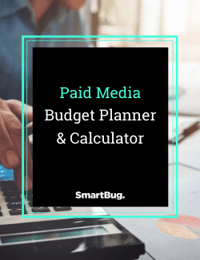
In today's digital age, companies need to be creative in their marketing strategies to remain competitive and meet consumers’ demands in an ever-changing landscape. One crucial aspect of digital marketing is paid search; it’s often overlooked, but its impact can be staggering when done correctly. Paid search is the act of using sponsored ads on search engines to drive traffic to their site.
Although it might seem like an unnecessary expense to some, paid search has become an essential tool that marketers cannot ignore. In this blog post, we'll discuss why paid search is crucial to digital marketing, how it can benefit your business, and how to develop your paid search strategy.
What is Paid Search?
Paid search is an online advertising method that allows companies to reach potential customers by placing sponsored ads on search engines to increase website traffic. Paid search reaches a wide audience because it includes all the major search engines, such as Google, Bing, Yahoo, and more. The ads are generally short and concise, and they appear at the top of search results, making them difficult to miss. They are typically labeled "ad" or "sponsored" to differentiate them from organic results.
There are several aspects that determine where your ad is placed on Google SERPs, such as:
- Bidding. Ads are placed in an auction-based system, and the highest bidder will receive the highest placement in search results.
- Keywords. Keywords are used to decide which ads appear in search results. Companies must choose keywords that are relevant and properly targeted to their audience.
- Relevancy. Ads must be relevant to the query or else they won't show up in the SERPs, even if they have the highest bid.
- Landing page quality. Paid search advertisers must ensure their landing pages are well optimized so that users who click on their ads will remain on the site rather than bouncing back to the search engine.
The Benefits of Having a Paid Search Strategy
There are almost endless benefits to having a solid paid search strategy as part of your digital marketing efforts. These are a few of our favorites.
Increased Visibility and Brand Awareness
With almost 4 billion searches every day, it can be challenging for businesses to gain visibility. Paid search allows businesses to show up at the top of search results where most clicks occur, so your website will get significantly more traffic, which leads to higher visibility and increased brand awareness. This means paid search is a great way to reach a wide audience that might not know your brand exists.
Valuable Data Insights
Paid search provides marketers with valuable data insights that can help shape their overall marketing strategy, such as what keywords and ad copy are resonating with their target audience, the times of the day their ads perform best, and which days of the week users are most likely to click on ads. This data can ultimately help marketers tweak their ads for more personalized ad delivery with less ad spend, improving their overall marketing strategy.
Improved Website Traffic and Conversions
Paid search doesn't just increase brand awareness and visibility; it also increases website traffic and conversions. When done correctly, paid search leads to high-quality leads, increased website traffic, and more customers. With the right targeting, calls to action, and landing pages, paid search can provide a significant boost to the business's bottom line.
How to Create a Paid Search Strategy
Setting up a paid search campaign can seem daunting, but it's actually quite simple when broken down into its individual components. Here are the steps to follow when setting up a paid search campaign:
- Set goals. Before you begin, it's important to set clear and achievable goals for your campaign. Ask yourself what you want to achieve from the campaign and how you will measure success.
- Select keywords. After establishing your goals, you need to select the right keywords to target. Use keyword research tools to create a list of relevant and targeted keywords, and make sure to select both short-tail and long-tail keywords.
- Choose the right platforms. Once you have your keywords ready, it’s time to select the platform you want to advertise on. The most popular search engine platforms are Google Ads and Microsoft Advertising, but there are other options you can choose from depending on your budget and target audience.
- Set your budget. Now you need to decide how much to invest in your campaign. This should be determined by how much you're willing to risk to get the desired results. Set a realistic paid media budget, and make sure to track your spending closely.
- Create ads. It's time to create your ads! Start by writing compelling ad copy variations that are both informative and persuasive. Use strong calls to action, and A/B test to see which versions convert the best.
- Monitor and optimize. When your campaign is live, it's important to monitor and optimize it regularly. Analyze the performance of your ads and make tweaks and adjustments where necessary to ensure that you are getting the best possible ROI.
By following these steps, you can easily create and manage a successful paid search campaign. Paid search can be a powerful tool to help increase visibility, website traffic, and conversions—but only if you use it correctly. If you're looking to get ahead of your competition, take the time to create a thoughtful paid search campaign and watch your business grow.
Incorporate Paid Search into Your Digital Marketing Strategy
Undeniably, paid search is an aspect of digital marketing that businesses should take advantage of. Paid search plays an essential role in increasing a business's online visibility, driving traffic to its website, and ultimately growing its bottom line. By investing in paid search advertising, businesses can achieve their marketing goals while remaining competitive in today's digital age.
This blog was originally published in 2019, and has been updated since.

About the author
Brooke Master was formerly the Content Marketing Coordinator at SmartBug Media. Brooke played a key part in executing multi-channel campaigns and programs at scale to increase inbound customer acquisition and engagement, and grow pipeline generation. Her passion as a woman in business is not only in marketing avenues but also for ministries and churches worldwide. Read more articles by Brooke Master.










